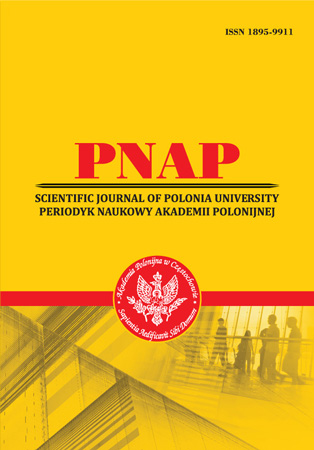SECONDARY NOMINATIONS OF INDEFINITE QUANTITY IN THE ENGLISH JOURNALISTIC DISCOURSE: TYPOLOGICAL FEATURES
Abstract
The study highlights the urgent issue of indefinite quantity linguistic representation in the English journalistic discourse. “Indefinite quantity secondary nomination” is identified as a secondary nominative creation that actualizes the quantitative feature of the primal nomination meaning, and transposes it to the object through metaphor and metonymy/synecdoche. The investigation defines the basic patterns of originating for secondary nominations of indefinite quantity in journalistic discourse. The first and most productive, through the metaphor, is motivated by the quantitative similarity between the objects of two different domains. The second and less representative, through the metonymy (synecdoche), is implied by quantitative similarity within the only one domain. This study attempts to describe the typological features of secondary nominations of indefinite quantity in the English journalistic texts. Based on the semantic, stylistic and contextual analysis, the investigation separates three complex types of images, used for metaphorical transfer: phenomena of nature (including fauna, flora, atmosphere, landscape and celestial bodies), humanmade objects and myth/fable entities. The metonymic transfer uses mostly the transfer based on the spatial and quantitative characteristics. The type of metonymy includes the synecdoche-based transfer of body part images onto an assemblage of objects.
References
2. Hak, W. H. (1977). K tipologii lingvisticheskih nominatsyi // Yazykovaya nominatsyya. Obshchiye voprosy. [Problems of linguistic nominations typology // Linguistic nomination. General studies.]. Moscow: Nauka. [in Russian]
3. Hobbes, T. (1994). Of the consequence or train of imaginations. The philosophy of mind. Cambridge (Mass.) : MIT Press.
4. Kövecses, Z. (2010). Metaphor: a Practical Introduction (2nd Ed). New York: Oxford University Press.
5. Lakoff, J. (2004). Metafory, kotorymi my zhivem. [Metaphors we live by]. Moscow: Editorial URSS. [in Russian]
6. Malan, G. (2016). Myth as metaphor. Pretoria: University of Pretoria Press.
7. Meisner, M. S. (1995). Metaphors of Nature. The Trumpeter, 12-1. 11–18.
8. Taranenko, O. O. (2002). Nominatsyya // Ukrayintska mowa. Entsyklopediya [Nomination // The Ukrainian language. Encyclopedia]. Kyiv: Ukr. encykl. [in Ukraininan]
9. Teliia, W. N. (1977). Wtorichnaya nominatsyya i yeho widy [Secondary nomination and its types]. Moscow: Nauka. [in Russian]
Abstract views: 231 PDF Downloads: 182







